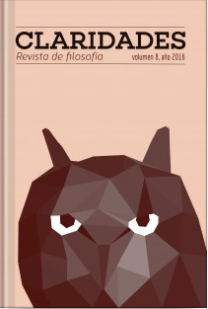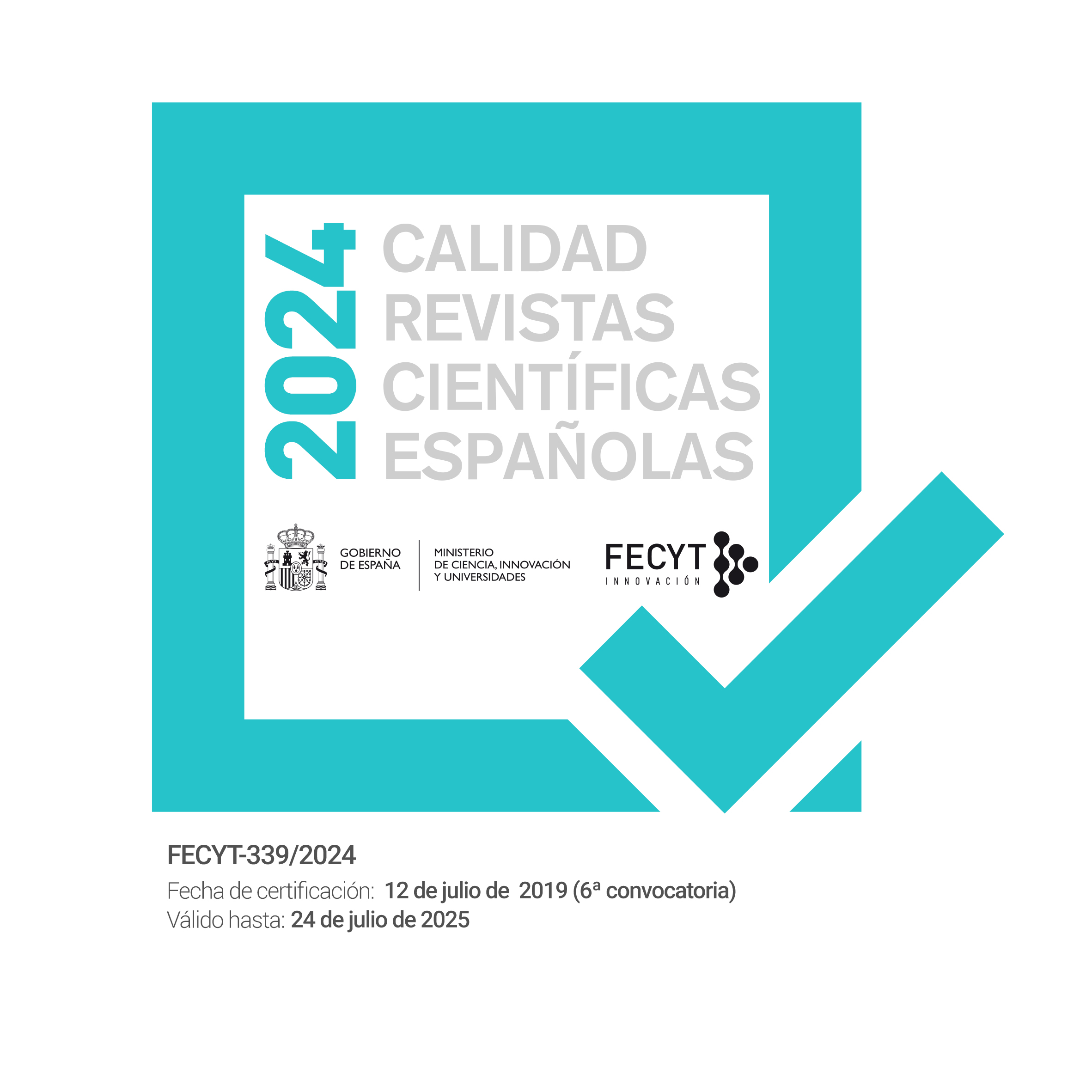From Kant to FIchte
DOI:
https://doi.org/10.24310/Claridadescrf.v8i0.3790Keywords:
ENLIGHTENMENT, EMPIRICISM, FREEDOM, IDEALISM, ETHICAL DESTINATION, IMAGE,Abstract
PALABRAS CLAVE
ILUSTRACIÓN, EMPIRISMO, LIBERTAD, IDEALISMO,
DESTINO ÉTICO, IMAGEN
ABSTRACT
This paper aims a hermeneutical analysis of the reception of Kant by Fichte to show in what sense the philosophy of Fichte, with which German idealism is started, is any deviation of the line from Hume to Kant (just like positivism for example suggests, and his defense of that philosophy should stop being metaphysics), but rather a well-founded “continuation” of Kant’s philosophy, in wich the limits of reason are the condition of possibility of the free thought, that as an action (Handeln) is conceived different but inseparable from the particular image (Nachbild) that thought produces and that should be released setting the ideal (Vorbild), projecting, recognizing -in Trías’s words “torn between its founding and original character of pure activity of thought thinking and the result derived from that action.”
Downloads
Metrics
Publication Facts
Reviewer profiles N/A
Author statements
Indexed in
-
—
- Academic society
- N/A
- Publisher
- Asociación para la promoción de la filosofía y la cultura en Málaga (FICUM) y UMAEditorial
References
BUTTERFIELD, H. (1965), The Whig Interpretation of History, New York: Norton.
CUBO, O., (2012), Kant. Sentido común y subjetividad, Plaza y Valdés: Madrid.
DIÉGUEZ, A. (2005), Filosofía de la ciencia, Madrid: Biblioteca Nueva
DUQUE, F. (1998), Historia de la filosofía moderna. La era crítica, Akal: Madrid.
FEYERABEND, P. (2003), ¿Por qué no Platón?, Madrid: Tecnos.
FICHTE, J-G (1845ss), Sämmtliche Werke, edición de I. H. Fichte: Ber-lin.
- (1962ss), J. G. Fichte-Gesamtausgabe der Bayerischen Akade-mie der Wissenschaften: Stuttgart.
GARCÍA, J. A., (2014), “El empirismo y la filosofía hoy”, en ROJAS-GARCÍA (eds), El idealismo alemán y sus consecuencias actuales, Contrastes , Suplemento 19, 159-177.
HEIDEGGER, M. (1973), Kant y el problema de la metafísica, trad. C. Ibicher, FCE, México.
- (1977) Sein und Zeit, GA 2, Klostermman: Frankfurt.
- (1986) Nietzsche. Der europäische Nihilismus, GA 48: Frank-furt: Klostermann.
JACOBS, W. G. (2014), Johann Gottlieb Fichte. Eine Einführung, Suhr-kamp: Berlin.
KANNT, I. (1783), Prolegomena, Akademie Ausgabe, IV.
- (1990ss), Gesammelten Schriften, Akademie-Ausgabe: Berlin.
LEYTE, A (2014), “Infinito romántico”, en ROJAS-GARCÍA (eds), El idealismo alemán y sus consecuencias actuales, Contrastes , Suplemento 19, 205-222.
MONTERO, F. (1987), Retorno a la fenomenología, Anthropos: Barcelo-na.
RAMOS, M. (2006), “La libertad en el principio de la Doctrina de la Ciencia de Fichte”, Quaderns de filosofia i ciència, 36, 51-59.
ROJAS, A (2014), Das Potenzlose: Hildesheim: Olms.
- (2014), “El bien y la intelección en Platón”, Thémata 5/ ju-lio-diciembre, 37-68.
- (2014), La deuda inconfesada de Heidegger, Universidad de Má-laga: Málaga.
SPINOZA, B. (2012), Éthique démontrée suivant l'ordre géométrique , edi-ción de Henrique Díaz disponible on-line : http://spinozaetnous.org/wiki/E (enlace copiado a 02.11.2015)
STROUD, B. (1977), Hume, Routledge & Kegan Paul: London.
TRÍAS, E (2013), Tratado de la pasión, Debolsillo: Barcelona, 2013.
Downloads
Published
How to Cite
Issue
Section
License
Esta revista provee acceso libre inmediato a su contenido bajo el principio de hacer disponible gratuitamente la investigación al público. Todos los contenidos publicados en Claridades. Revista de Filosofía, están sujetos a la licencia Creative Commons Reconocimento-NoComercia-Compartirigual 4.0 cuyo texto completo puede consultar en <http://creativecommons.org/licenses/by-nc-sa/4.0>
Es responsabilidad de los autores/as obtener los permisos necesarios de las imágenes que están sujetas a derechos de autor.
Los autores/as cuyas contribuciones sean aceptadas para su publicación en esta revista conservarán el derecho no exclusivo de utilizar sus
contribuciones con fines académicos, de investigación y educativos, incluyendo el auto-archivo o depósito en repositorios de acceso abierto de cualquier tipo.
La edición electrónica de esta revista esta editada por la Editorial de la Universidad de Málaga (UmaEditorial), siendo necesario citar la procedencia en cualquier reproducción parcial o total.

















6.png)
